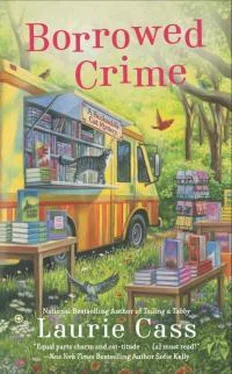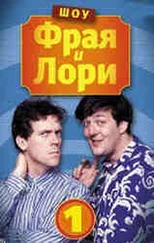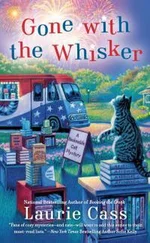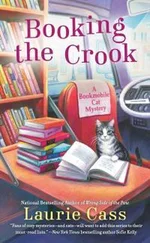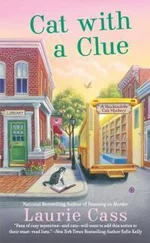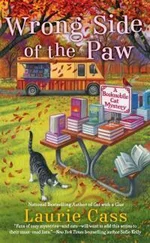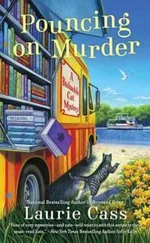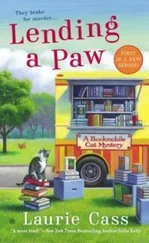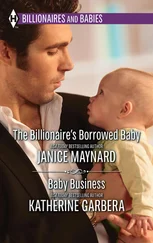From the tone of his voice, it was easy to tell that he didn’t want to hear anything I had to say. “Since you asked,” I said, “there is one thing.” His sigh was sadly audible. The man really needed to work on his people skills.
“Go ahead,” he told me. “I’m all agog with anticipation.”
I almost laughed, but caught myself just in time. “Detective, if you don’t want to listen, all you have to do is say so.” I heard a snort, but couldn’t decide if it was sarcastic, humorous, or illness derived.
“As you said, Ms. Hamilton, all information can be important. I just hope you don’t have as many pages as Mr. Koyne did.”
While it was tempting to say “more,” just to hear his reaction, I merely told him about Pam Fazio, about her abrupt and angry departure from the Friends, and about her parting shot, which could be considered a threat.
Detective Inwood listened, then said, “Thank you, Ms. Hamilton. We’ll continue to pursue the investigation until all avenues are exhausted.”
I wasn’t sure how an avenue could get tired, but decided against criticizing his metaphor. “There’s another thing.”
“Sorry, Ms. Hamilton. You mentioned one point of information, not two.”
My eyes opened wide. “Oh. Uh . . .”
The detective laughed. “Got you. Now, what were you saying?”
So, the law enforcement officer actually had a sense of humor. Who knew? “The other day, Denise rattled off the names of people she said might be considered enemies. I just wanted to make sure she’d told you, too.”
“She did indeed,” Inwood said, his voice dry as every cake I’d ever made. “She gave us the name of a local attorney, a middle-school teacher, a retail-store owner, and the director of a nonprofit organization.”
“They don’t sound exactly like prime candidates for murder, do they?”
“Ms. Hamilton,” he said tiredly, “in my experience, absolutely anyone can commit murder.”
As I hung up the phone, his words echoed around inside my head. Anyone can commit murder.
* * *
By midafternoon, the thick clouds had all blown off and it was suddenly a clear and beautiful day.
The library was nearly deserted on this day after a holiday, Stephen was out of town, and I’d worked so many unpaid library hours the past two weeks that I found it easy enough to turn off any guilt my mother could inflict on me from afar.
I slipped on my coat and stopped by the front desk to tell Kelsey I’d be back in an hour.
“Sounds good,” she said vaguely, turning a page of the book she was reading.
A different assistant library director might have smacked down any employee caught reading during working hours, saying that there were always things to do, but I had no problem letting people catch their breath on quiet days, which were few and far between.
I walked through and past downtown to the area where buildings that had been residences in the days of yore were now renovated into professional buildings. Doctors, dentists, engineers, and there, in a white clapboard house with a widow’s walk up top, was the attorney’s office I was aiming for.
A small brass plate on the red front door told me I was about to enter the law offices of Powell, Hirsh, and Carter. Inside, the hardwood floor was covered with patterned carpets that I hoped could tolerate the sidewalk salt that people would soon start to track inside.
“May I help you?”
A woman with short dark hair, a sheaf of papers in her hand, and a pair of reading glasses on her head was giving me a polite, questioning look.
“I wasn’t sure you’d be open today,” I said.
“Technically, we aren’t.” She laughed, hefting the papers. “But there’s work to do and it’s always quiet on this day, so I figured I might as get a head start on next week.”
A number of tiny clues were piling up, from her age to her air of ownership, so I went ahead and asked, “Are you Shannon Hirsh?” Although Denise had claimed Shannon to be manipulative and full of hate, the woman seemed nice enough.
“Every day,” she said cheerfully. “And you are?”
I introduced myself, and started in with the spiel I’d manufactured on my walk over. “I’ve been thinking about setting up a will. I don’t have any dependents and hardly any assets”—while Eddie was priceless to me, I was pretty sure the appraisal professionals out there wouldn’t put a proper value on him—“but I figure it’s worth doing, no matter what.”
Shannon nodded, her dark hair bobbing with her. “Always a good idea to have your estate in order.”
“I hadn’t thought about it much before,” I said, “but Roger Slade’s death really got me thinking. Such a shame, and such a shock, too.”
“He was an extremely nice man.” Shannon put the papers down and studied me closely. “Minnie Hamilton. From the library. You’re the one who—”
“Yes,” I said quickly. “Like I said, it was a shock.”
“I imagine.” She gave a sad smile. “Or, rather, I don’t want to imagine.”
“It’s not as if I knew him very well,” I said, watching her closely, “but I feel . . . somewhat responsible.”
“For what?” She raised her eyebrows. “For some moron’s stupidity? How can that possibly be your fault?”
“It was because of me that he was there at all,” I said. “If it hadn’t been for me, if hadn’t been for the bookmobile, he would never have been there in the first place.” And no matter what, I couldn’t get away from that awful truth. Deep down, no matter what I said to people and no matter what people said to me, I knew I was partially responsible.
Shannon snorted. “Come on back. Let me show you something.”
She led me through a rabbit’s warren of hallways, conference rooms, and offices to the back of the building, where the windows of her corner office looked out over a backyard that was well tended, even in late November. The office was a typical attorney’s office: a few restrained prints of flowers, lots of files, three-ring binders, books, and . . . trophies?
“Take a close look,” she said, waving toward the crowded shelf.
Curious, I squinted at the tiny lettering engraved into the brass plate of a trophy so tall, it was scratching the underside of the shelf above. When I saw what the award was for, I stood bolt upright and stared at her. “Are these all . . . ?” I gestured at the rest of the shelf.
She shrugged. “I don’t really care about them anymore, but they make you take them. I started winning when I was just out of high school. The bug caught me and I’m still shooting.”
And, apparently, still winning. I glanced at the date on the plaque in front of me. Just this summer, Shannon had won first place for a shooting award in Fort Gratiot, Michigan. The trophy to its right proclaimed that last year she’d won third place in a national competition in Colorado.
She tapped a tall trophy. “So, you can see, when I say it’s not your fault, I know what I’m talking about. No hunter worthy of the name would ever shoot someone accidentally, not like poor Roger was shot.”
I disagreed about the fault thing, but she was entitled to her opinion, even if it was wrong.
“Roger was far too nice a guy for Denise,” Shannon said, sitting on the edge of her desk, next to the framed pictures of people I assumed were her husband and children. “No idea what he ever saw in her—she’s been a pain in the you-know-what since she was born—but it’s a shame what happened.” She sighed. “No one deserves that, not even Denise. And certainly not Roger.”
“Someone told me,” I said, “that you and Denise were big rivals in high school.”
She smiled. “A more accurate assessment would be that Denise hated me. If I said it was because I beat her out for first-chair flute in sixth grade, would you believe me?”
Читать дальше
